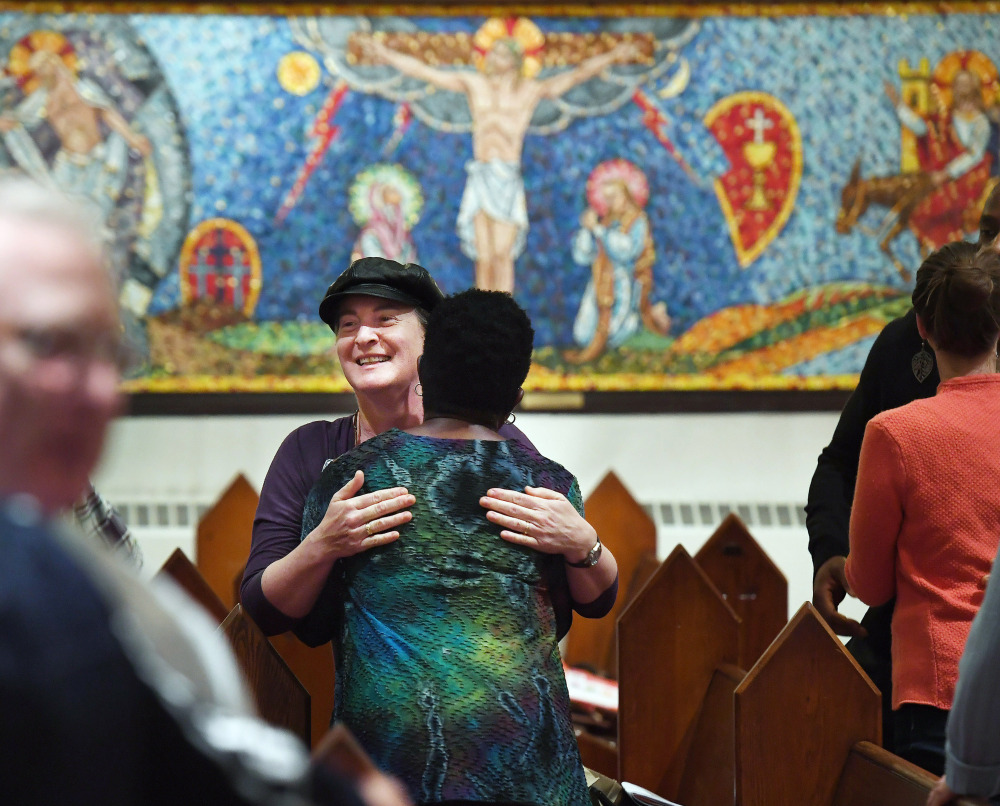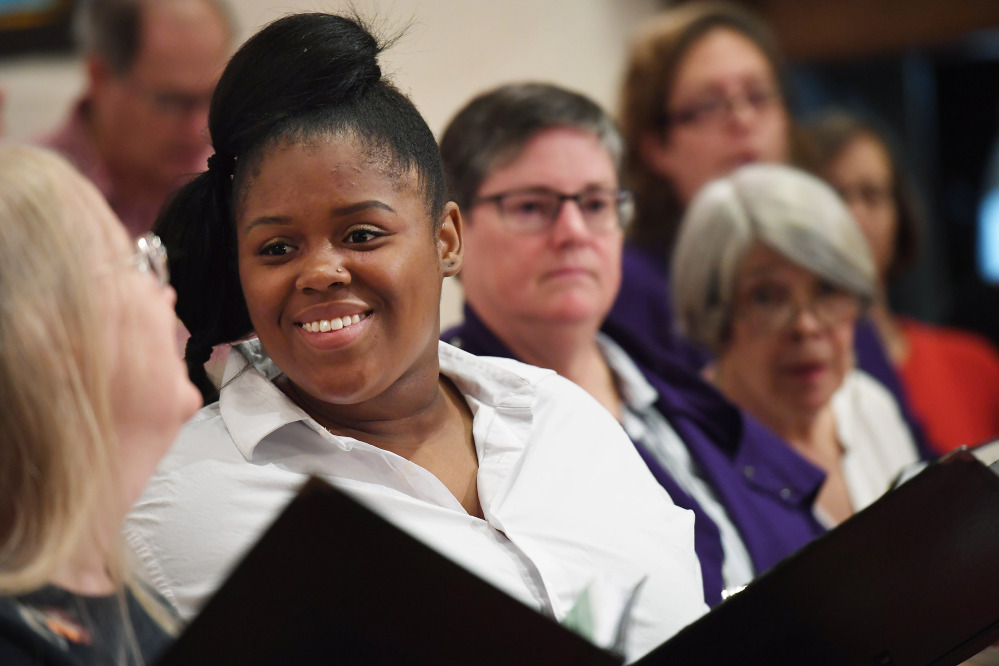A year ago, in the days after the shock of learning that Donald Trump would be the next president, Charleen Ward was afraid.
And come Sunday, she was in church.
“I was really scared. I felt that things were going to be drastically changed for me as an African-American woman, as a gay woman,” she said. “I needed to come after the election. I knew there would be many who felt the way I did. I needed to have that family support of the church.”
The pews were packed in churches across the country on the Sunday after the election, filled with Trump supporters giving thanks for the turning of a page in America, with stunned liberals seeking solace, and with many who simply felt compelled to be together in community in an emotional moment.
Surely, the election didn’t mark any sort of spiritual awakening in America. There’s been no big turn in the tide of an increasingly secular younger generation. But there was a slight shift: In churches across America, some of the people who walked through the doors for the first time in many years on that Sunday after Election Day stuck around. In quiet ways in the past year, the church has changed them. And they have changed the church.
That’s apparent at St. Margaret’s Episcopal Church in the District of Columbia, where Ward found community on that Sunday after the election. The church has so many new members that the clergy just launched a series to teach them, over drinks, about the theology behind their social justice causes.
“It comes out of the requests from our 20- and 30-somethings, who are kind of new to church. They’re not new to advocacy. They’re not new to activism,” said the Rev. Richard Weinberg. “They have commitments. But they don’t have the theological language and background.”
Average Sunday attendance jumped from 98 in the month leading up to Trump’s inauguration to 122 the next month, Weinberg said. “I would say that there is more of an energy and a commitment to the resistance movement. Young folks and not-young folks alike are coming.”
It’s a pattern echoed across the city and across the country, in congregations of many stripes. In many Jewish and Muslim congregations, some young people who didn’t think much about their identities before drew closer to their communities in the face of rising anti-Semitism and Islamophobia. At All Souls Unitarian Universalist Church in the District, the Rev. Robert Hardies said that Sunday attendance is 33 percent higher this fall than it was before last year’s election.
The Rev. Susan Frederick-Gray, president of the Unitarian Universalist Association, said that’s the case at most congregations across the country in the liberal Unitarian Universalist church. Her own church in Phoenix saw a 20 percent increase in Sunday attendance after the election.
“A lot of people who are members but hadn’t been attending regularly or hadn’t attended in a while are all coming back to the community,” she said.
She thinks the stress of politics is driving women and immigrants in particular to church. “When people are afraid, when they’re facing trauma, when they’re in the midst of tremendous challenge and difficulty, they seek out communities that will support them,” Frederick-Gray said. “They seek out religious community. And I believe people are experiencing trauma in this political environment.”
When The Washington Post asked women who participated in the January Women’s March to write in about what actions they’ve taken since Trump’s inauguration, at least a dozen mentioned getting more involved in a church.
“At this time in our lives, this whole political climate is so distressing, a bit frightening, and so un-Christian to me that it is heartbreaking. So many people profess to believe in God but speak and act in ways that Jesus would never condone,” wrote Tami Garrow, 57, of Yuma, Arizona. “I just don’t get it. At all. . . . So I go to church, write my elected officials, send money, pray, and try to figure out how to be relevant in a world that suddenly feels a bit foreign to me.”
Send questions/comments to the editors.




Success. Please wait for the page to reload. If the page does not reload within 5 seconds, please refresh the page.
Enter your email and password to access comments.
Hi, to comment on stories you must . This profile is in addition to your subscription and website login.
Already have a commenting profile? .
Invalid username/password.
Please check your email to confirm and complete your registration.
Only subscribers are eligible to post comments. Please subscribe or login first for digital access. Here’s why.
Use the form below to reset your password. When you've submitted your account email, we will send an email with a reset code.